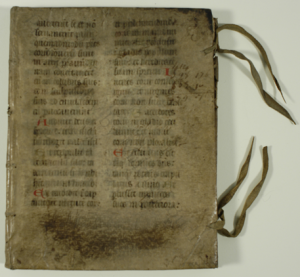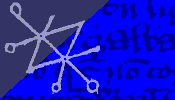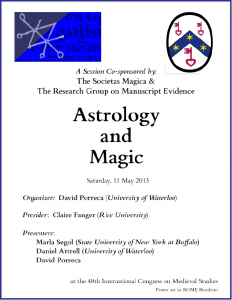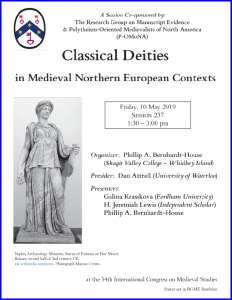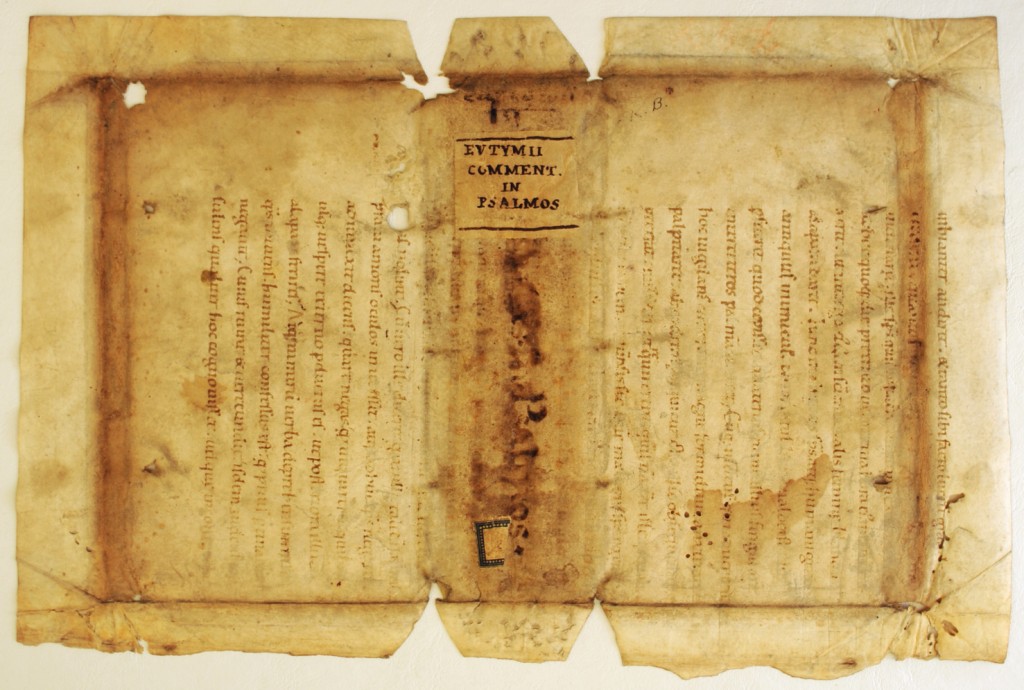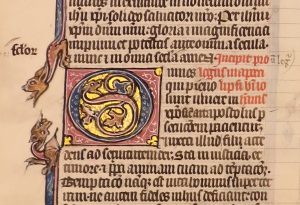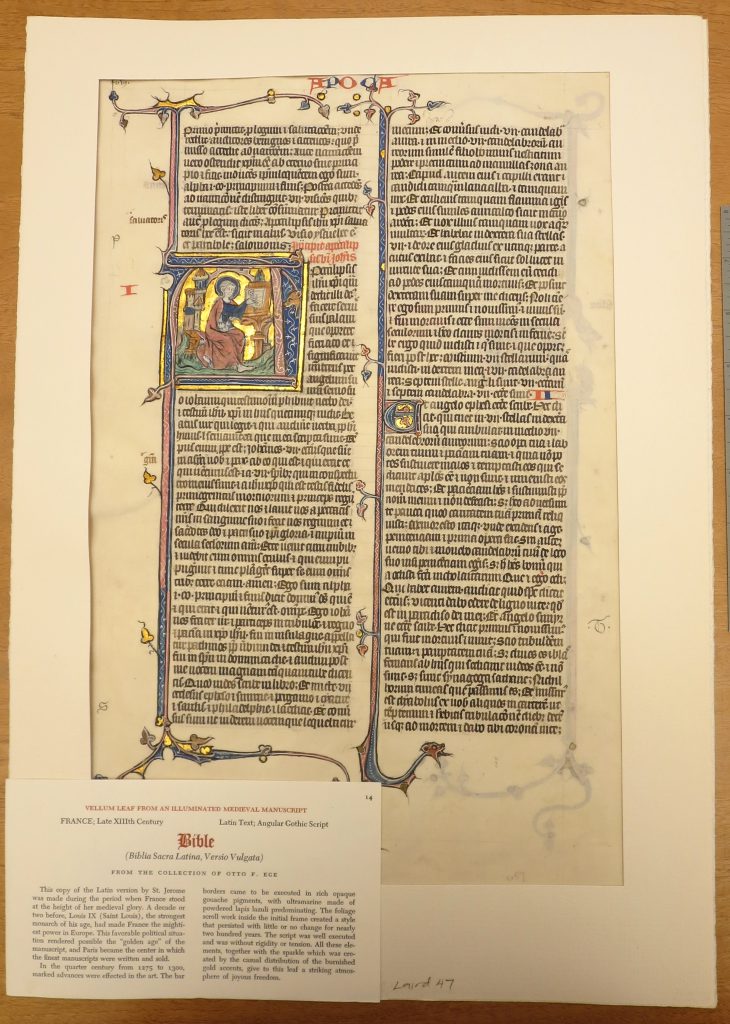2023 International Congress on Medieval Studies: Report
October 23, 2023 in Events, ICMS, Index of Medieval Art, International Congress on Medieval Studies, Kalamazoo, Manuscript Studies, POMONA, Societas Magica, Uncategorized
2023 International Congress on Medieval Studies: Report
58th ICMS (11–13 May 2023)
Held in a transitional ‘hybrid’ form
with Sponsored and Co-Sponsored Sessions
an Open Business Meeting
and Co-Sponsored Reception
[Posted on 22 October 2023]
After the successful completion of our activities at the 2023 International Congress on Medieval Studies (ICMS), we offer a Report about them. For their programs and the abstracts of their presentations, see 2023 International Congress on Medieval Studies: Program.
Note that Abstracts for Papers published on our website appear in the Indexes of the Abstracts for Papers, listed both by Alphabetical order of Author’s Surname and by Year.
Logistics
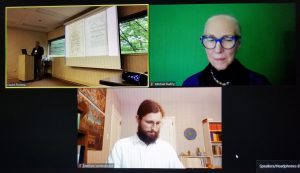
2023 ICMS: Pedagogy II viewed online. Michael Allman presents. Photography by Mildred Budny.
This year’s Congress presented more logistical challenges than ever before, in our experience of attending the annual ICMS. They were due to the complex and incompletely or perplexingly described conditions for holding the Congress in a nominal ‘hybrid’ format, with few fully hybrid events and the necessity for organizers mostly to choose either in-person or online formats — or to provide the alternative through their own resources.
In that way, for example, once the rules were clarified (within only a fortnight of the Congress), the RGME was able resourcefully to provide (through its own Zoom subscription) for online access to events assigned as in-person and to arrange (sometimes with payment) for a room to be made available for registrants on site at the Congress to gather for participating in sessions assigned as online. We thank the Congress staff for enabling those arrangements once we learned that they might be permitted.
Our activities comprised five co-sponsored scholarly Sessions, our annual Open Business Meeting at the Congress, and a co-sponsored Reception.
The extra arrangements for in-person facilities for the online sessions and online access for in-person sessions were designed also for the convenience of participants for our events on the first day of the Congress, which had a consecutive series of Morning Session / Lunchtime Business Meeting / two Afternoon Sessions / Reception. With the Morning Session in a nearby building, the other events that day, by design, took place on one building.
Co-Sponsorship
- Societas Magica: 2 Sessions and the Reception
- Schoenberg Institute for Manuscript Studies (SIMS): 2 Sessions
- Polytheism-Oriented Medievalists of North America (P.-O.M.o.N.A.): 1 Session
- Index of Medieval Art at Princeton University: Reception
This year marked Year 19 of our co-sponsorship with the Societas Magica; the second (non-consecutive) year of co-sponsorship with POMONA, the third of co-sponsorship with the Index of Medieval Art, and the first year of co-sponsorship with SIMS.
As always, we thank the host, organizers, co-sponsors, presiders, speakers, respondents, advisers, and participants for our activities at the Congress, along with the Congress staff and support staff.
The Sequence of Events
Day 1 of the Congress (Thursday 11 May) had a full set of events. They opened with the Morning Session, led to the RGME Open Business Meeting (with lunch provided), followed with a pair of Afternoon Sessions, and rounded out with the co-hosted Reception.
Day 3 (Saturday 13 May) had a pair of Afternoon Sessions.
The shortness of the notice and the complexity of the RGME’s extra preparations for an ad-hoc fully hybrid format imposed further problems in communicating updated information which, in the rush of last-minute preparations and conflicting information, meant that not all participants received the relevant information in time. Notably this affected the extra online arrangements for the in-person sessions on Saturday afternoon, so that the first one did not have an on-site log-in for the online component.
Informal “Evening Sessions”. Outside the Program, a set of traditional informal gatherings offered the occasion to revive the in-person tradition of meetings in an ad-hoc ‘Board Room’ where board games, brought to the table for the occasion, formed a focus of activity and conversation. As usual, they included some elements of RGME planning. This year, they included an ad-hoc hybrid component for participation at a distance as well.
Our Report of all our activities at the 2023 Congress relates their accomplishment, celebrates the presentations, praises the work of organization, notes a few changes in the program and accessibility for the sessions, displays the full set of posters for our events, and illustrates some memorable moments.

